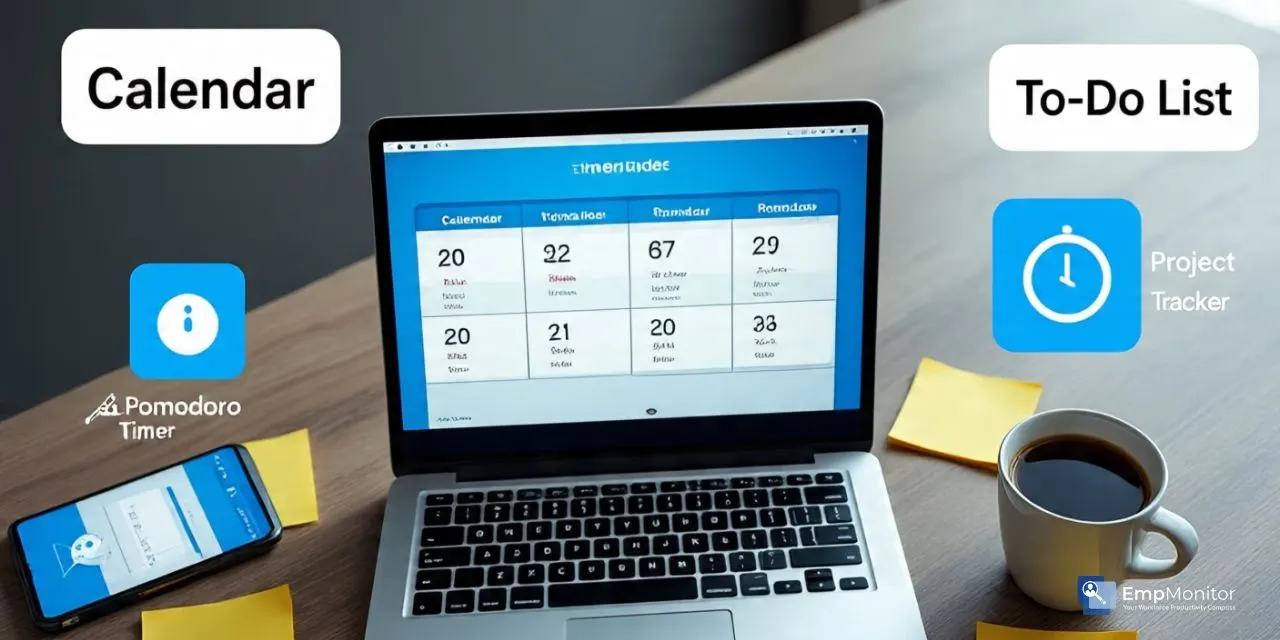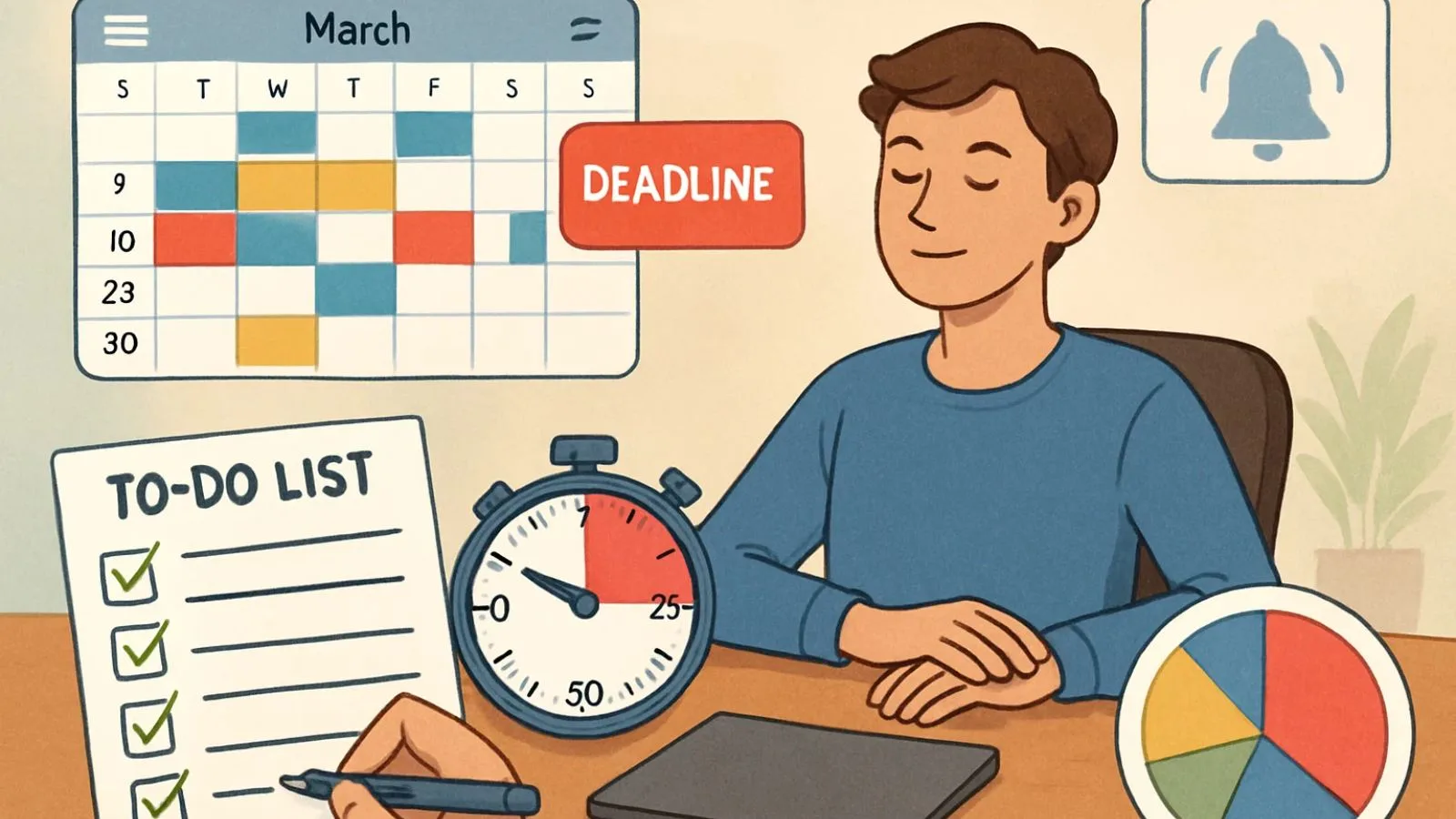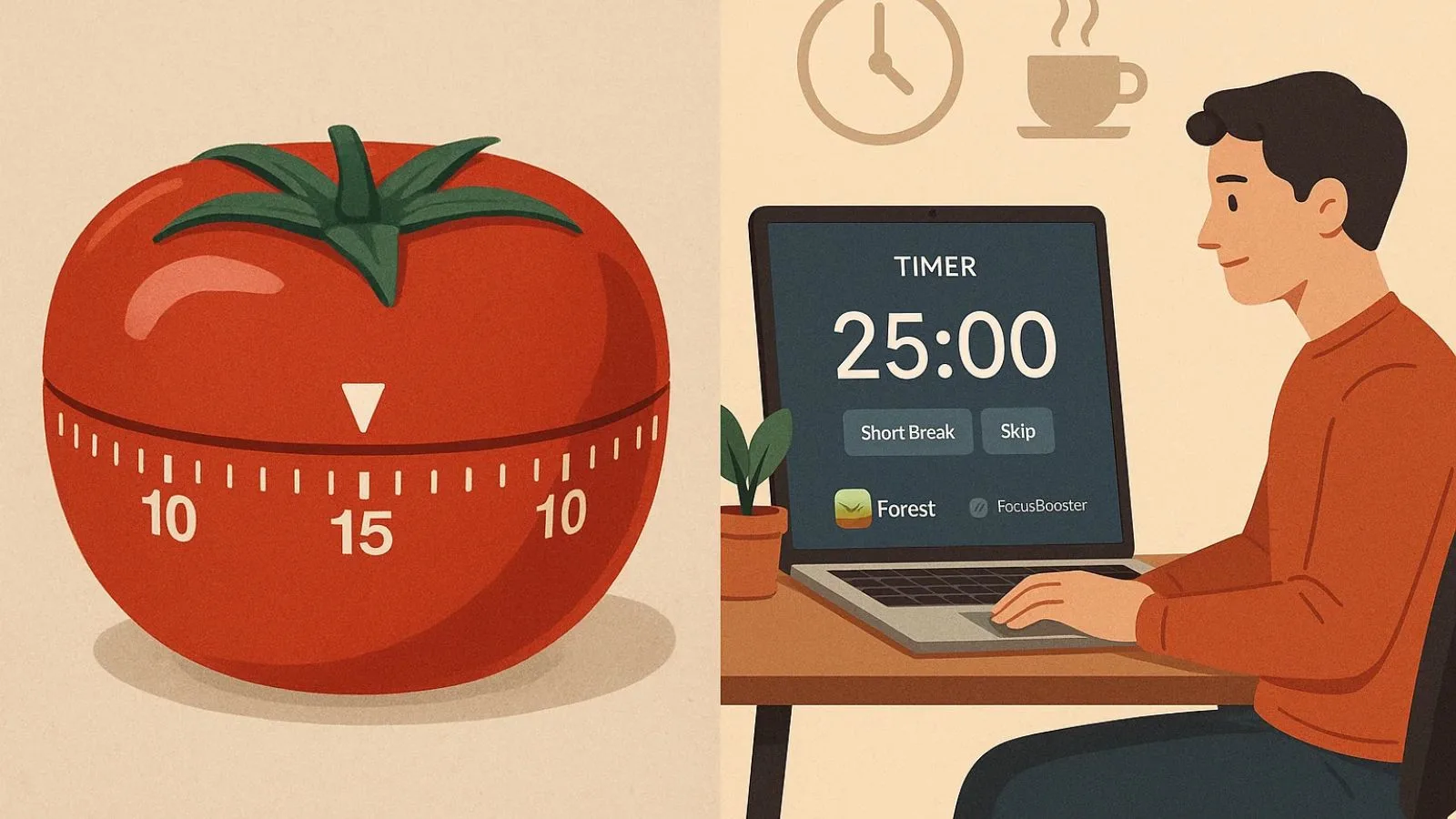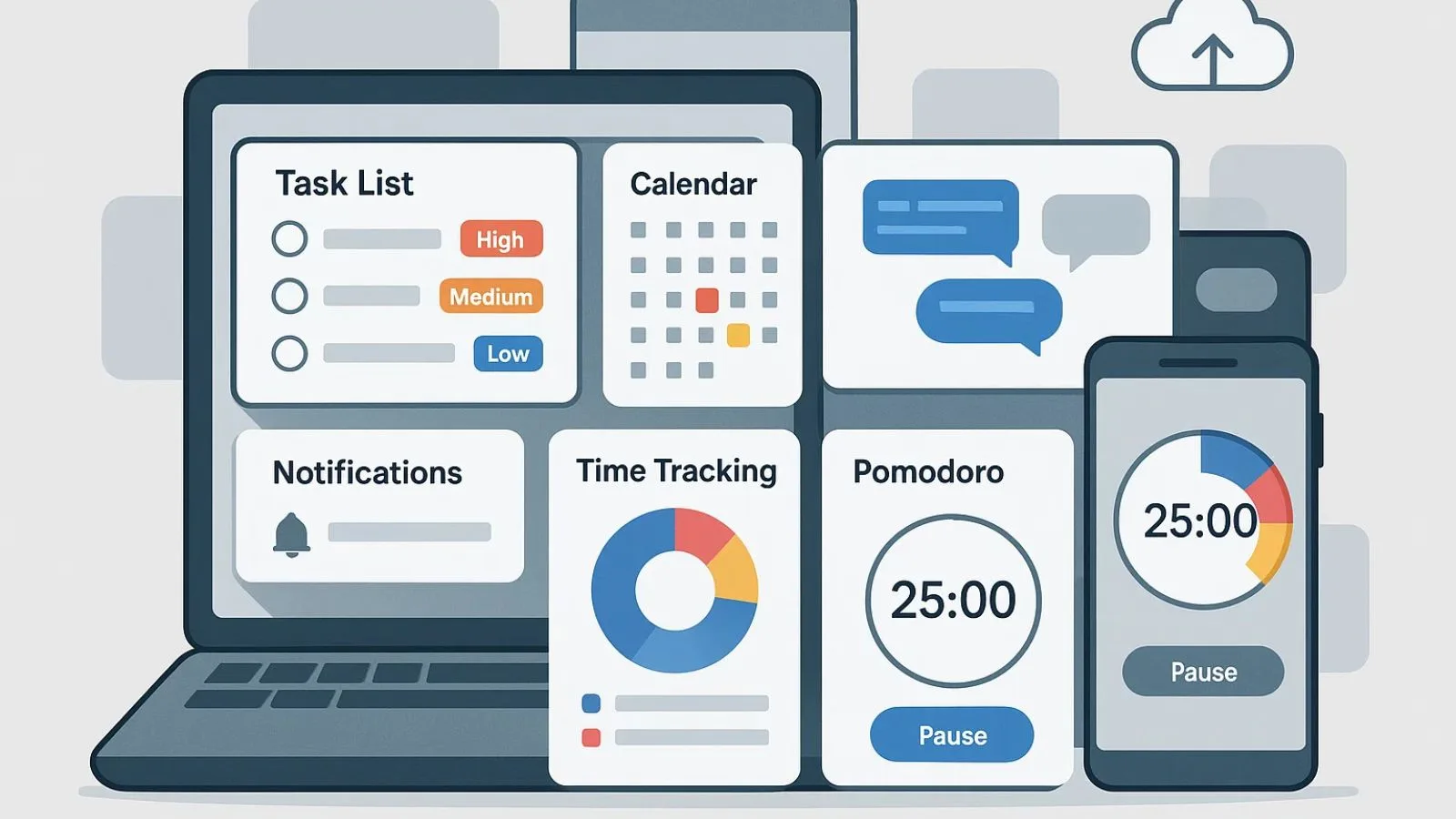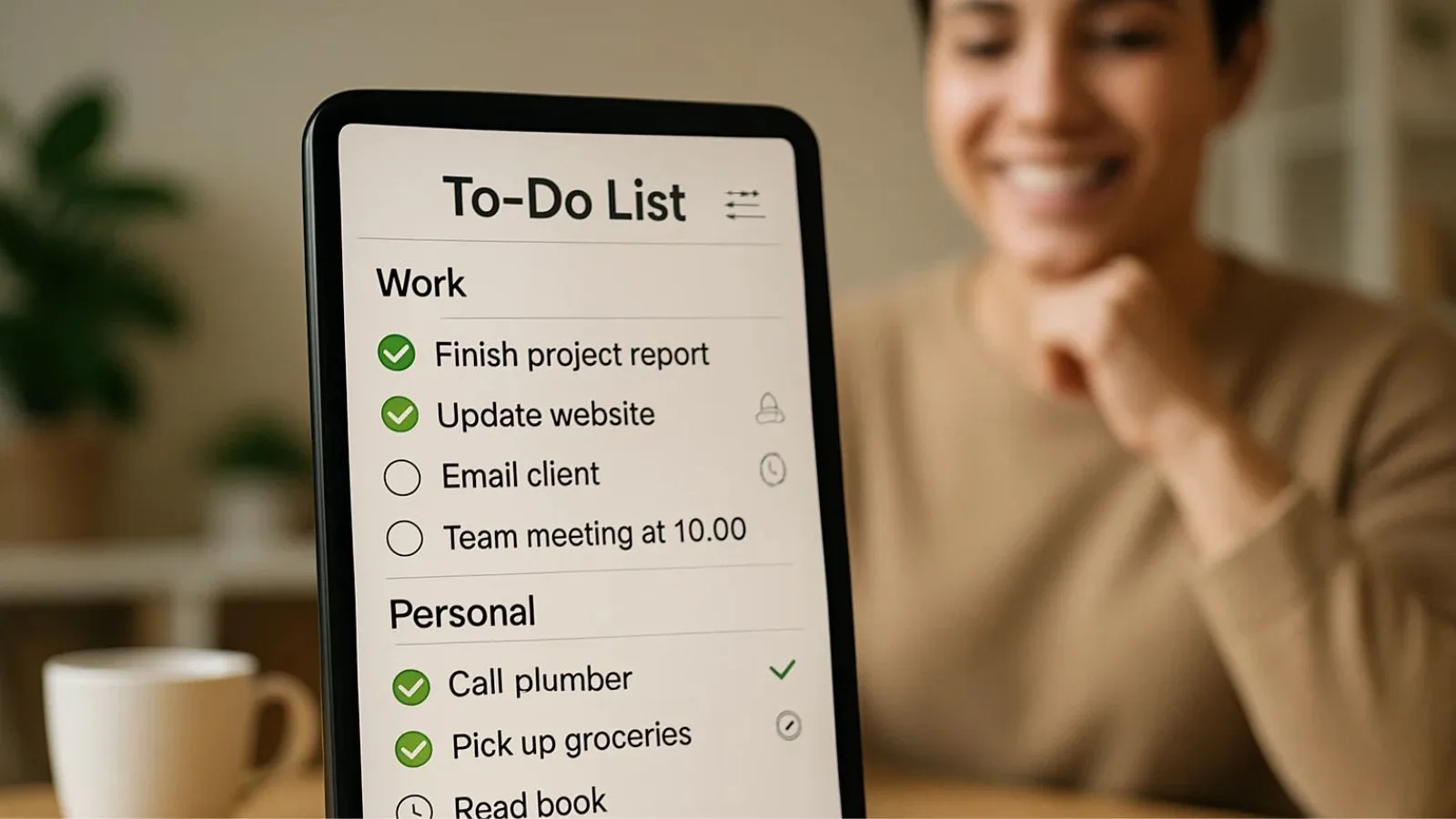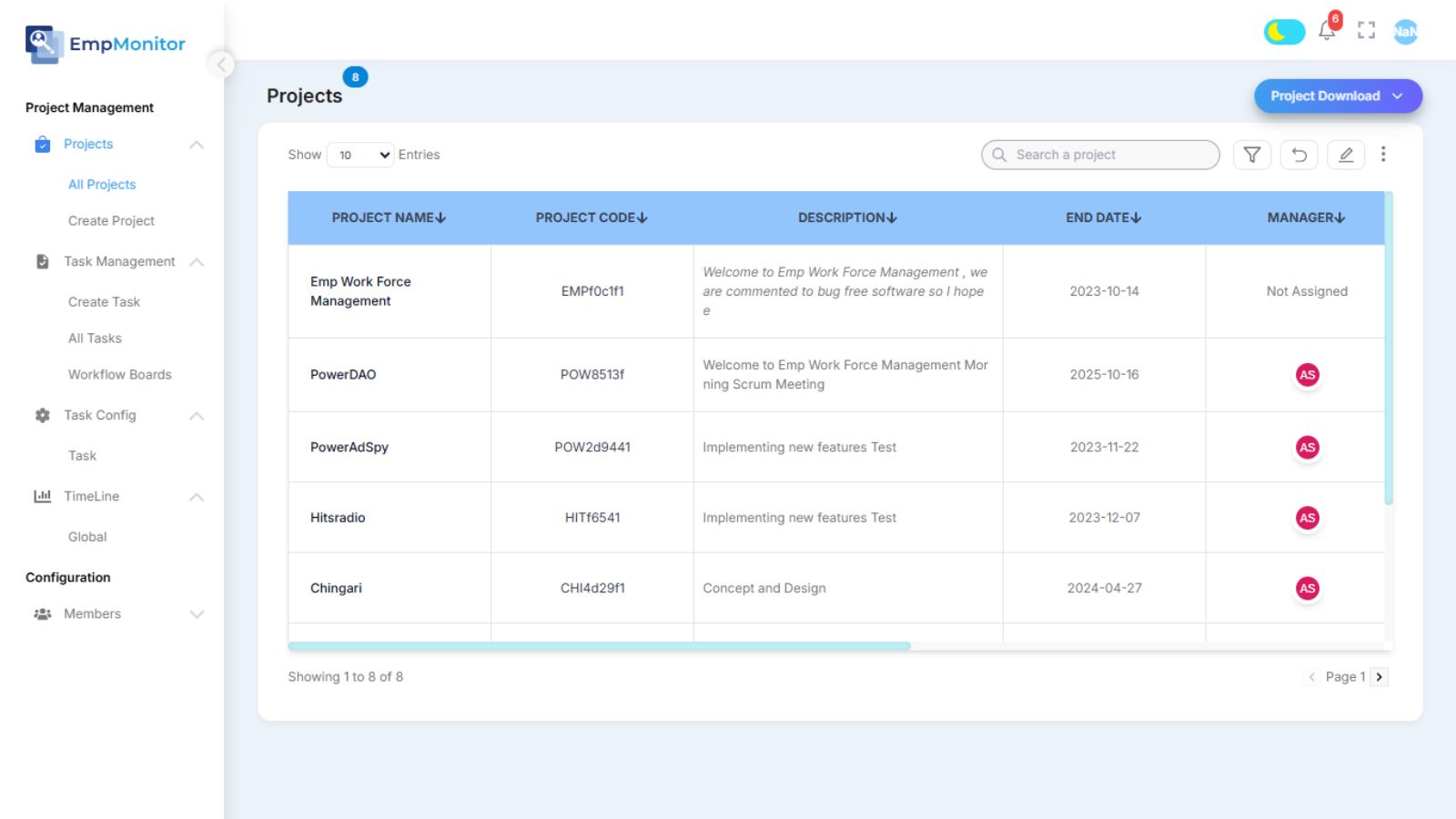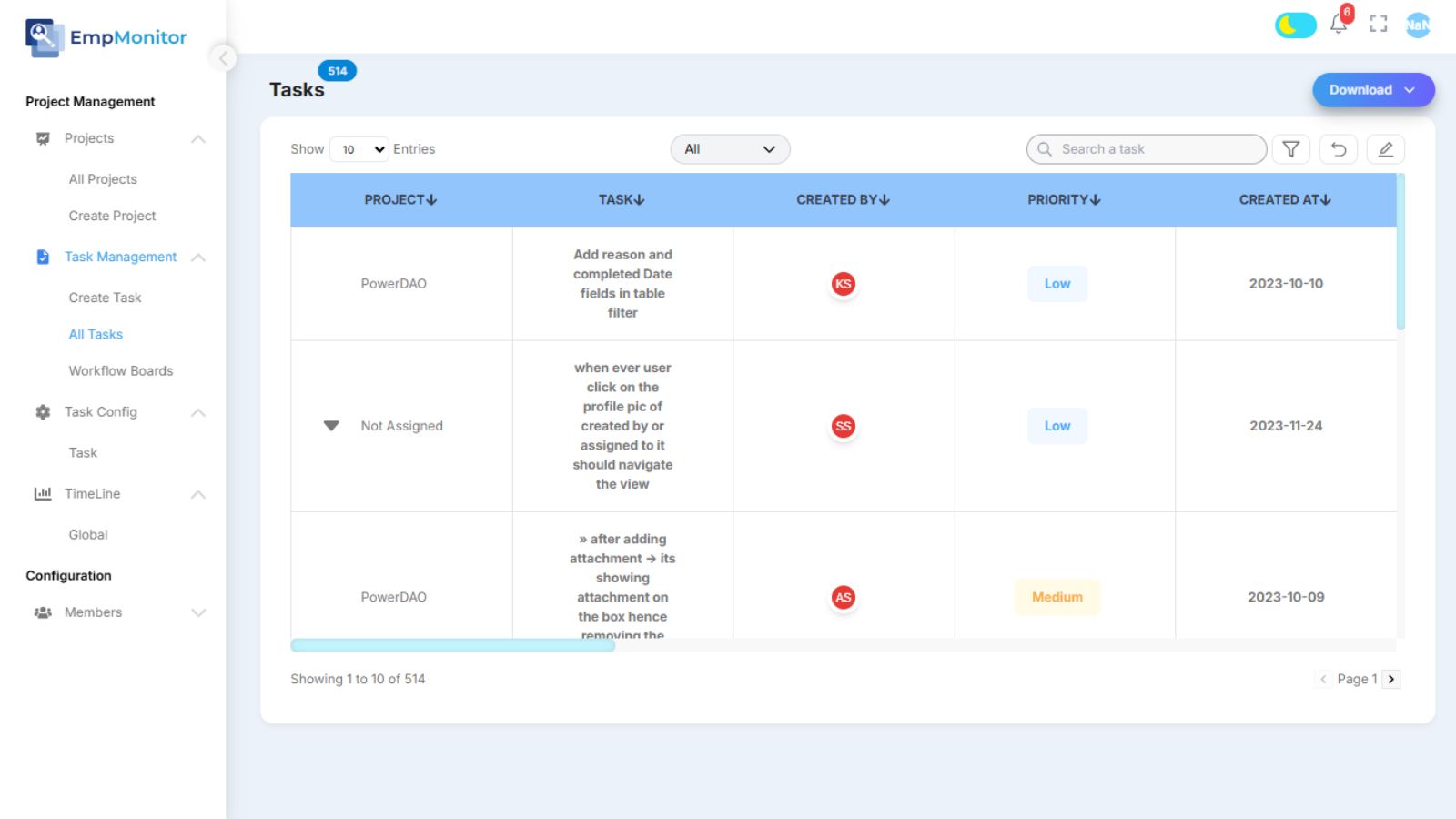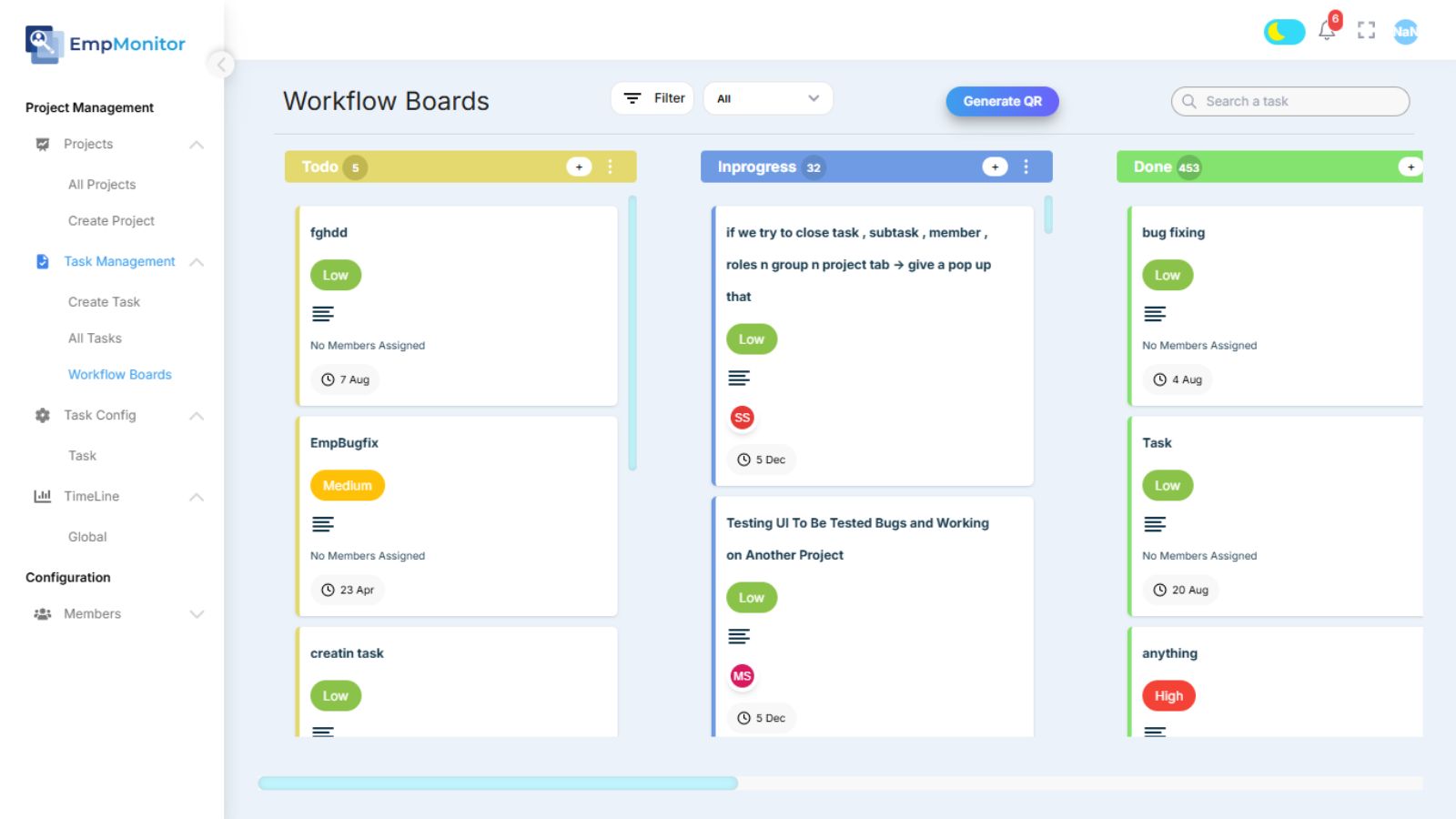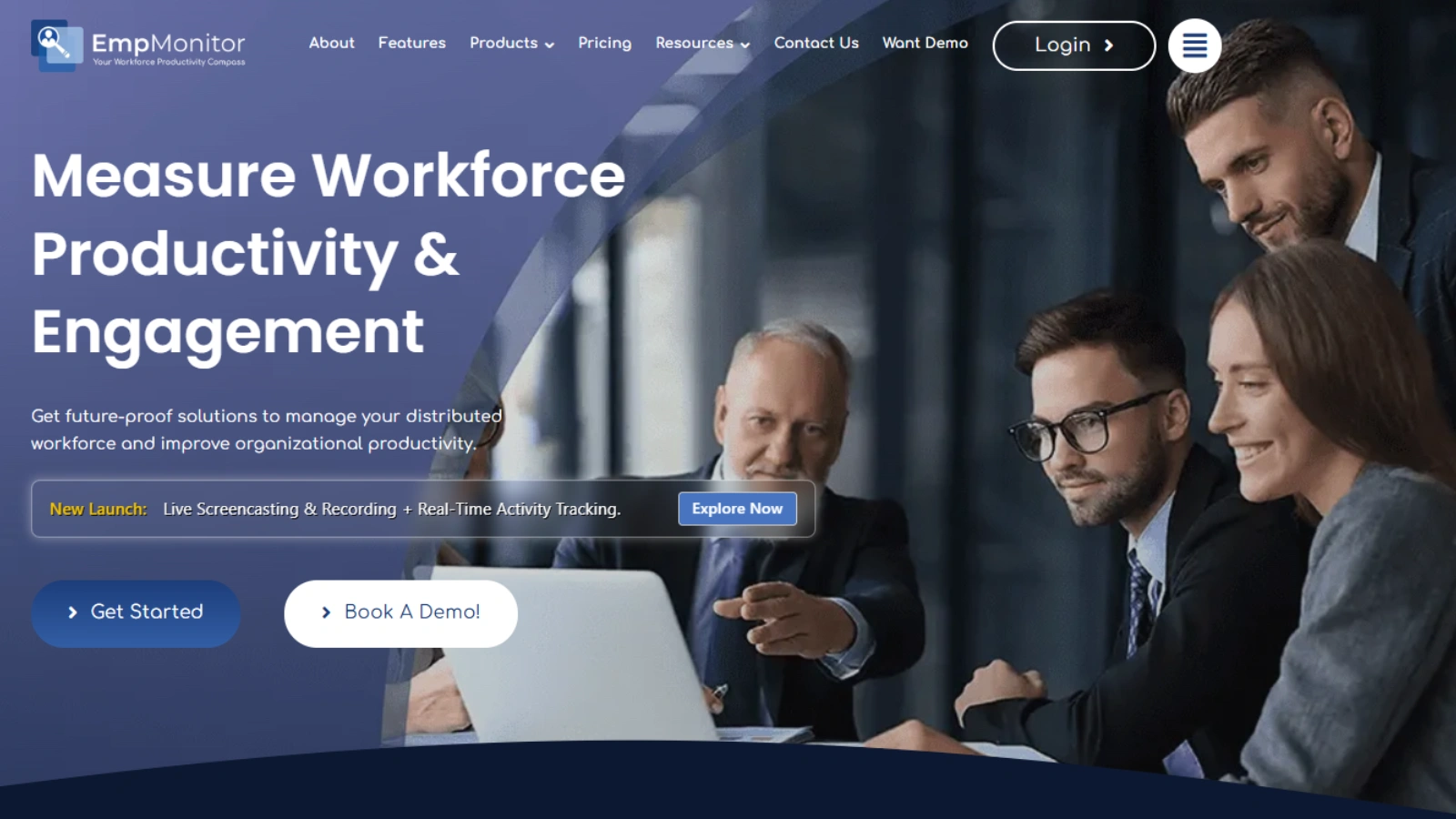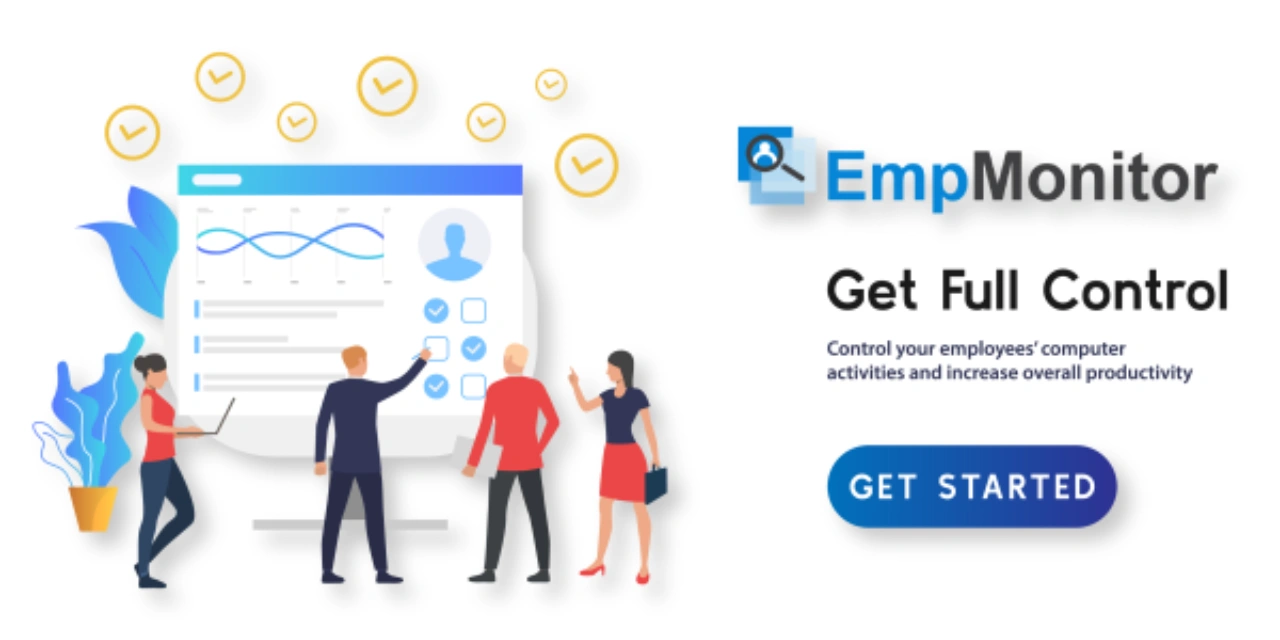Staying on top of everything in a busy workday isn’t easy. Between meetings, deadlines, and distractions, it’s tough to keep things running smoothly. That’s where time management tools can make a real difference.
These handy tools help you organize your day, stay focused, and accomplish tasks, without burning out.
We’ve all had days when the to-do list keeps growing, but nothing seems to get crossed off. It’s frustrating.
The truth is, managing time isn’t just about planning your schedule; it’s about using the right tools to make smarter choices.
Whether you’re working solo or leading a team, the right setup can help you turn chaos into clarity.
In this blog, we’ll walk you through how different Time Management Software can transform your workflow, boost your productivity, and help you make the most of every minute.
What Are Time Management Tools And Why Are They Essential?
Managing your time in today’s busy world can feel like a juggling act.
That’s where time management tools come in.
These tools are designed to help you stay on top of tasks, deadlines, and goals, without the stress of trying to remember everything on your own.
From setting reminders to tracking how much time you spend on different tasks, these tools help you stay focused and avoid last-minute chaos.
Most of them are super user-friendly and customizable to fit your workflow.
They also support popular time management techniques like prioritizing tasks, using time blocks, or even breaking work into focused sessions.
Instead of feeling scattered, you get a clear view of what needs to be done—and when.
In short, these tools do more than just track time.
They help you build better habits, work smarter, and make the most of every hour in your day. Once you start using them, you’ll wonder how you ever managed without them.
How The Pomodoro Technique Inspired Modern Time Management Tools?
The Pomodoro Technique is one of the most effective time management tools strategies ever created.
Developed in the late 1980s, it involves working in focused 25-minute intervals followed by short breaks.
This simple yet powerful method trains your brain to stay on task, avoid burnout, and make steady progress throughout the day.
Over time, this approach has shaped the design of many modern time management tools.
From countdown timers and break alerts to focus tracking features, today’s digital tools are increasingly built to mimic the rhythm of the Pomodoro cycle.
Apps like Forest, Focus Booster, and even task managers now offer Pomodoro-style options to help users maintain deep focus.
By using tools inspired by the Pomodoro method, individuals and teams can manage distractions, improve concentration, and build a more structured workflow.
Whether you’re working remotely, managing a team, or tackling personal projects, integrating these tools into your routine can make time management tools more practical and less overwhelming.
Key Features To Look For In Effective Time Management Apps:
Not all time management apps are created equal; some simply set reminders, while others offer powerful features that can completely revamp your workflow.
When choosing the right app, look for features that support how you work.
At the core, the best time management tools offer task scheduling, real-time reminders, and calendar integration.
These features help users prioritize their day effectively and stay focused on high-impact activities.
Look for apps that let you organize tasks into categories or projects, which adds clarity to your daily goals.
Another essential feature is time tracking.
It allows you to monitor how long you’re spending on tasks and helps you identify where time is being wasted.
Some apps even use the Pomodoro technique to encourage focused work sessions followed by short breaks, making it easier to maintain concentration throughout the day.
Additionally, cloud sync, cross-device compatibility, and team collaboration tools can greatly enhance usability, especially for remote workers or teams.
Ultimately, the right app should simplify your schedule, not complicate it.
Using A Project Time Manager To Keep Teams On Track:
Keeping teams on track in a fast-paced work environment can be a real challenge, especially when juggling multiple deadlines and responsibilities.
That’s where time management tools prove invaluable. They not only help prioritize tasks but also ensure projects are completed efficiently and on time.
One powerful feature often integrated into these tools is a project time manager, which allows teams to allocate hours to specific tasks, set milestones, and monitor progress in real time.
This level of visibility helps managers identify bottlenecks early and adjust resources as needed.
It also promotes accountability within the team, as everyone is aware of their roles and deadlines.
Moreover, a good project time manager provides insights into team productivity through reports and analytics.
These insights are crucial for improving workflow and making data-driven decisions for future projects.
Whether you’re managing a remote team or collaborating in an office setting, adopting a reliable project time management tools can transform how your team operates, leading to better collaboration, higher productivity, and more successful project outcomes.
The Power Of A Well-Structured To-Do List:
In the hustle of daily work, it’s easy to feel overwhelmed by tasks piling up.
That’s where a well-structured to do list comes in.
More than just a checklist, it’s a simple yet powerful productivity hack that brings clarity, direction, and focus to your day.
Whether you’re managing projects or juggling personal responsibilities, writing down tasks helps prioritize what truly matters and keeps distractions at bay.
The effectiveness of a to-do list grows when paired with the right time management tools.
Digital tools today let you create, organize, and track your lists across devices, ensuring you never miss a task.
Features like notifications, recurring tasks, and deadline reminders add structure and accountability to your routine.
A well-maintained list doesn’t just help with organization; it boosts motivation.
There’s a real sense of accomplishment in ticking off completed tasks, no matter how small.
It also gives you a quick overview of pending work, making daily planning more strategic and less stressful.
In short, a smart to-do list supported by efficient tools can transform the way you work, helping you stay productive, reduce mental clutter, and meet your goals with confidence.
Empowering Workflows With An Employee Time Tracker:
Keeping track of how your team spends time during work hours is essential, not just for accountability but for improving overall productivity.
This is where an employee time tracker becomes an invaluable asset for any business, especially in remote and hybrid work settings.
An employee time tracker helps monitor working hours, breaks, and idle time, giving employers clear visibility into how tasks are progressing.
It also assists in identifying workflow bottlenecks, allowing managers to reassign or reprioritize tasks for better results.
Employees, on the other hand, gain more awareness of their time usage, encouraging them to stay focused and reduce distractions.
Modern time management tools often come with built-in time tracking features that automate attendance, log project hours, and generate productivity reports.
These insights help teams make informed decisions based on real-time data instead of guesswork.
Whether you’re managing a small business or a large enterprise, integrating a reliable employee time tracker into your system ensures better project planning, transparent performance reviews, and accurate payroll processing.
Ultimately, the goal isn’t to micromanage but to empower your team.
When used correctly, a time tracker becomes more than just a monitoring tool; it becomes a part of a proactive strategy to streamline workflows and boost team efficiency.
Also Read:
06 Mind-Blowing Time Management Software
How To Implement Kanban Board Project Management In Practice In 2025?
Beyond Time Tracking: EmpMonitor’s Built-In Task And Project Management:
Along with monitoring the workforce,
EmpMonitor also provides project and task management features that allow managers to keep track of tasks given to employees so that they can be finished within the expected time.
It enables managers to plan and organize their workload so that employees can work more efficiently by setting priorities in their to-do list.
While managers can assign tasks equally and keep track of them at the same time.
Comprehensive Project Management:

Managing multiple projects becomes effortless with EmpMonitor’s project coordination tools.
Create detailed project timelines, set important milestones, and allocate resources efficiently.
The dashboard provides a bird’s-eye view of all active projects, showing completion percentages, upcoming deadlines, and potential bottlenecks.
This level of visibility helps managers make informed decisions and keeps projects moving forward smoothly.
Smart Task Management:
EmpMonitor’s task management system allows you to create, assign, and prioritize tasks with ease.
You can set deadlines, add detailed descriptions, and track progress in real-time.
The intuitive interface makes it simple to organize tasks by priority, department, or project, ensuring nothing falls through the cracks.
Team members can update task status, add comments, and collaborate seamlessly, keeping everyone aligned on project goals.
Workflow Boards:
This project management also provides Kanban workflow boards provide a visual approach to managing team productivity and task distribution.
These boards allow managers to create organized workflows where tasks can be moved through different stages of completion.
Team members can easily see what needs to be done, what’s in progress, and what’s completed.
The drag-and-drop interface makes it simple to update task status, reassign work when needed, and maintain clear visibility across all ongoing projects.
This visual system helps eliminate confusion and ensures everyone knows their priorities at any given time.
What makes EmpMonitor truly powerful is how these features integrate seamlessly.
Time tracking data automatically connects to specific tasks and projects, providing accurate insights into productivity patterns and helping you optimize workflows for maximum efficiency.
Boost Productivity With Empmonitor: A Complete Time Tracking Solution:
Managing time at work isn’t always easy, especially when you’re handling multiple projects or managing a remote team.
That’s where smart time management tools like EmpMonitor can make a real difference.
EmpMonitor is designed to take the guesswork out of productivity.
It helps you see how your team is spending their work hours without being invasive.
From tracking log-in times to showing which apps are being used most during the day, everything is laid out in one clean dashboard.
You don’t have to keep checking in; EmpMonitor gives you real-time insights to manage your workflow better.
One of the best things?
It’s incredibly user-friendly. Whether you’re tracking attendance, checking productivity levels, or reviewing daily activity logs, it’s all just a few clicks away.
You even get visual reports that help you spot time-wasting patterns and improve team performance over time.
For businesses juggling remote or hybrid teams, EmpMonitor brings much-needed clarity.
It’s not about micromanaging; it’s about creating a more transparent, efficient, and balanced work environment.
If you’ve been relying on spreadsheets or basic trackers, it’s time for an upgrade.
EmpMonitor gives you the power to manage time smarter, boost productivity, and help your team do their best work, without burning out.
Choosing The Right Tool For Your Workflow:
With so many time management tools available today, selecting the right one for your workflow can feel overwhelming.
The key is to focus on your specific needs, whether you’re a solo professional trying to organize daily tasks or managing a team that needs streamlined coordination.
Start by identifying the challenges you face:
Are you struggling with distractions, missing deadlines, or inefficient task delegation?
Once you’re clear on your priorities, explore time management tools that align with your goals.
For example, if you need help staying focused, a tool with built-in timers and task blockers can work wonders.
On the other hand, project-based teams may benefit more from apps that offer Gantt charts, milestone tracking, and team collaboration features.
Another important factor is usability. No matter how advanced a tool is, if it’s not user-friendly, your team won’t adopt it.
Look for platforms with clean interfaces, mobile access, and easy onboarding. Integration with other tools you already use, like Slack, Google Calendar, or Trello, can also help streamline your workflow.
Finally, consider scalability. The tool you choose should grow with you, offering more advanced features as your projects expand or your team size increases.
Whether you’re a freelancer or leading an enterprise, the right tool can dramatically improve productivity, accountability, and time efficiency.
Conclusion:
Managing your time well can feel like a constant juggling act.
But with the right time management tools, it doesn’t have to be that hard.
These tools aren’t just about tracking hours or setting reminders; they’re about helping you stay focused, organized, and in control of your day.
Whether you’re working solo, managing a remote team, or just trying to stay ahead of your daily to-do list, the right tool can make a big difference.
It’s not about doing more, it’s about doing what matters, better.
So if you’ve been feeling overwhelmed or stretched too thin, now’s a good time to explore the tools out there.
Find what fits your workflow, start small, and let technology take some of the pressure off. Time’s ticking, make it count.
FAQ’s About Time Management Tools:
Q1. What are time management tools, and how do they help?
Time management tools are digital solutions designed to help you plan, schedule, and track tasks efficiently.
They’re essential for improving focus, reducing time waste, and boosting overall productivity.
Q2. Can I use time management tools on mobile devices?
Absolutely. Most tools are available as mobile apps, allowing you to manage tasks, track time, and set reminders on the go.
Q3. Do these tools work for teams as well as individuals?
Yes, many time management tools offer collaborative features like shared task boards, project timelines, and real-time updates, making them ideal for teams.
Q4. Are free versions of time management apps worth using?
Free versions often include basic features like task lists and timers.
For more advanced functionality, like reporting or integrations, you might need a premium plan.
Q5. How do I know which tool is best for my workflow?
Consider your work style, goals, and team size. Try out a few tools with free trials to see which one fits your needs best.

